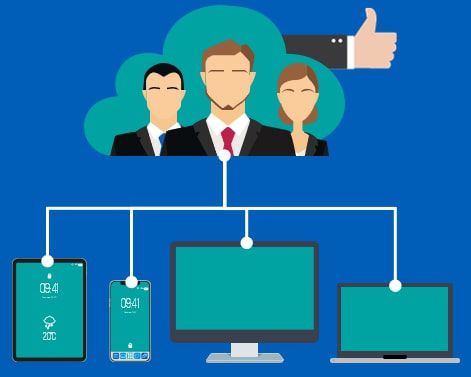From finance to sales to human resource management – numerous work processes are increasingly supported by the use of IT systems.
Most HR processes also impact other departments. For example, HR time management and payroll go hand in hand. In addition, managers and employees are usually actively involved in the implementation of HR processes. The challenge here is to find a uniform and suitable HR software for all requirements and needs so that processes can be synchronised.

There is therefore a greater demand for uniform HR systems across all HR areas to ensure high-quality data, create automatic interfaces, improve communication and reduce susceptibility to errors. On-premises solutions and cloud technologies are often relied on for this purpose. At the same time, integration with other 4.0 technologies plays a major role.
Demographic change and the competition for the best talent on the labour market are forcing business entities to rethink and act.
In recent years, the HR department has therefore become more important. HR managers are important strategic partners especially in the strategic orientation and shaping of the future of organisations. It has long been clear that a business entity cannot survive without qualified employees.

Therefore, the planning of future personnel requirements and qualifications, the selection and further development of qualified employees as well as the improvement of employee satisfaction are increasingly defined as goals in the HR strategy. Implementing the strategic agenda requires time and an efficient approach to operational HR tasks.
The use of an overarching HR management system supports you in covering your strategic and operational requirements across all HR areas and in overcoming future challenges.
Your contacts
Marc Ennemann
Partner, Performance & Strategy, Enterprise Performance
KPMG AG Wirtschaftsprüfungsgesellschaft
Sascha Glemser
Partner, Performance & Strategy, Head of Enterprise Performance
KPMG AG Wirtschaftsprüfungsgesellschaft
Michael Niederée
Partner, Consulting, Technology Transformation
KPMG AG Wirtschaftsprüfungsgesellschaft
Connect with us
- Find office locations kpmg.findOfficeLocations
- kpmg.emailUs
- Social media @ KPMG kpmg.socialMedia


